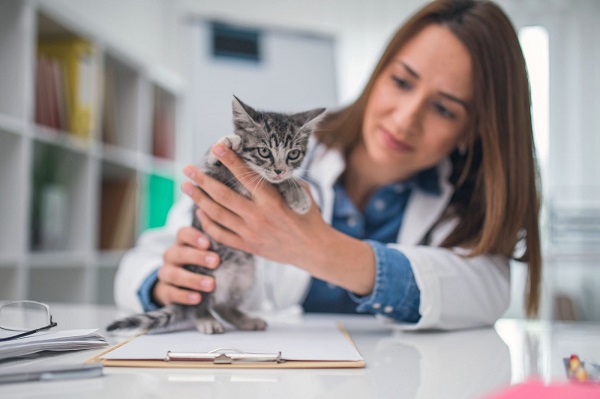If we were to ask every owner how often they take their cats to the vet, many would answer something like ‘once a year,’ or ‘every six months.’ But are those times really appropriate? Some owners don’t take their cats in for checkups and vaccinations; they rely solely on wellness visits when their cats are sick.
How often do you take a cat to the vet?
The veterinarians recommend that cats be seen by a vet twice per year. The Society of Veterinary Epidemiologists and Preventive Medicine concurs. There is no minimum age at which cats should be vaccinated. Let’s read How To Teach A Cat To The Toilet?
The purpose of an annual exam is to look for any changes in your cat’s health. These can include weight gain or loss, excessive grooming habits, dental problems, and disease. A yearly physical will help you establish a baseline of good health so that if any changes occur, they can be spotted early.
Wellness visits are important in many ways:
Dental health is important to overall health. At least once per year, cats should receive a dental cleaning from the vet, including a blood test for infections such as Feline Immunodeficiency Virus (FIV).
Checkups allow the vet to perform a physical exam. In this way, any changes in the cat’s health can be spotted and addressed before they become serious.
You might read: Do ants sleep
Cats should receive vaccinations twice annually, not only for diseases prevalent in your neighborhood or area but also because their immune system ages as they do and resistance may wane. Vaccinations stimulate the immune system, so repeated stimulation will renew the immune response.
Although a cat may be indoors only, he should still be vaccinated for infections like Feline Leukemia Virus (FeLV), feline distemper virus, and rabies. Most people don’t want their cats to get sick from these common infections and risk complications later on in life.
The cost of vaccinations and checkups is minimal compared to the costs of treatment, hospitalization, and euthanasia if your cat contracts an illness or gets injured.
How long can a cat live without going to the vet?
The typical cat with no serious health problems can live to be 15 years old. According to the American Association of Feline Practitioners, by the age of 10, a cat who has had all their vaccinations may have contracted a disease and been treated for it, or they might already have suffered from other diseases as well. The older they get, the more likely they are to get sick.
You may consider adopting a companion for your older cat. A kitten can provide company and an outlet for play that is healthy, both physically and mentally.
For many reasons, cats need routine veterinary care just like humans do. We all want to avoid having our cats end up at the vet’s office with problems that could have been prevented. Would you please take your cats in for yearly checkups and vaccinations? They only need to be at the vet for a little while, but they’ll get lots of love and attention when they visit. It’s a small price to pay to keep them happy and healthy throughout their lives!
You might like also: Can cats eat raw chicken?
Is it bad not to take your cat to the vet?
Many pet owners do not take their cats in because they think it’s a waste of money or time. According to veterinarians, there are many reasons why taking your cat to the vet is an important part of caring for him. Some people do not like to bring their cats to the vets due to fear that once they go there, they will be diagnosed with a serious illness. The veterinarians, however, recommend that cats be seen by a vet twice per year. There are many reasons why cats should visit the vets, as mentioned above, like dental health and keeping them healthy when they are left at home alone and unprotected from diseases or accidents that may occur.
Final words,
The most important reason that cat owner should take their cats to the vet is for health reasons. Cats can contract diseases from other animals and be vaccinated will help keep them safe from the viruses and bacteria in your neighborhood.


